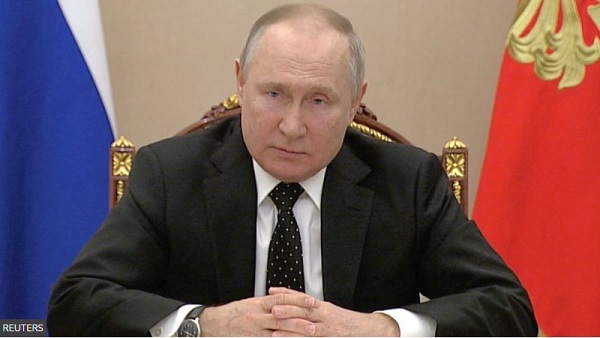
Vladimir Putin has ordered Russia's military to put its deterrence forces, which include nuclear weapons, on "special alert".
He told defence chiefs it was because of "aggressive statements" by the West, amid widespread condemnation of his invasion of Ukraine.
The announcement does not mean Russia intends to use the weapons.
The US immediately condemned his decision calling it an "unacceptable escalation".
Last week, Mr Putin had warned that "whoever tries to hinder us" in Ukraine would see consequences "you have never seen in your history".
Those words were widely interpreted as signalling a threat to use nuclear weapons if the West stood in his way.
That warning became sharper on Sunday when he ordered the Russian defence minister and the chief of the military's general staff to put the nuclear deterrent forces on a "special regime of combat duty".
After Mr Putin's announcement, the EU announced an unprecedented new raft of sanctions and actions against Russia, including:
- *The financing of weapons for Ukraine
- *A total ban on Russian planes using EU airspace
- *Barring state media outlets Sputnik and Russia Today from EU territory.
These measures come on top of other sanctions already imposed by Western nations, which include asset freezes on major banks and wealthy individuals, including Mr Putin himself.
The US ambassador to the United Nations said Mr Putin's nuclear deterrent order showed he was escalating the Ukraine conflict in an unacceptable manner.
The White House said Russia had not been under threat from Nato at any point, while Nato Secretary General Jens Stoltenberg described Mr Putin's comments as "dangerous rhetoric".

